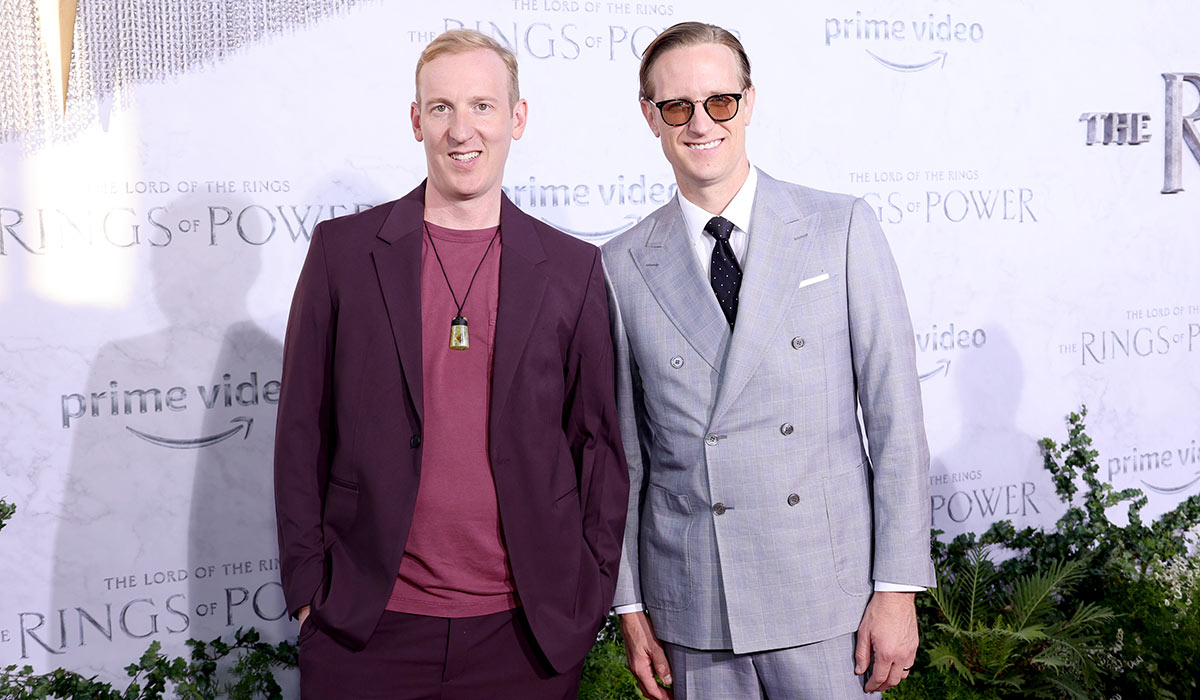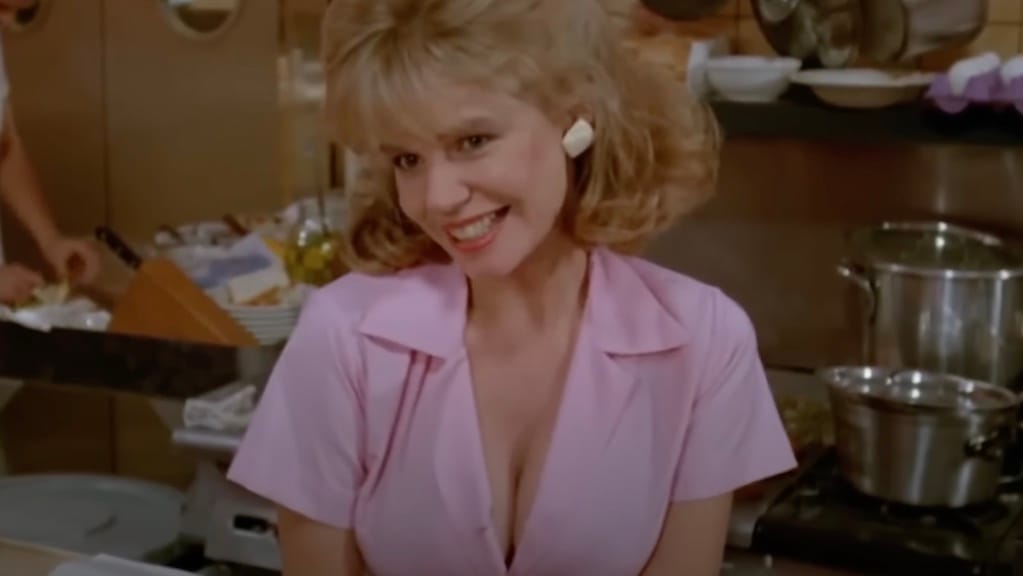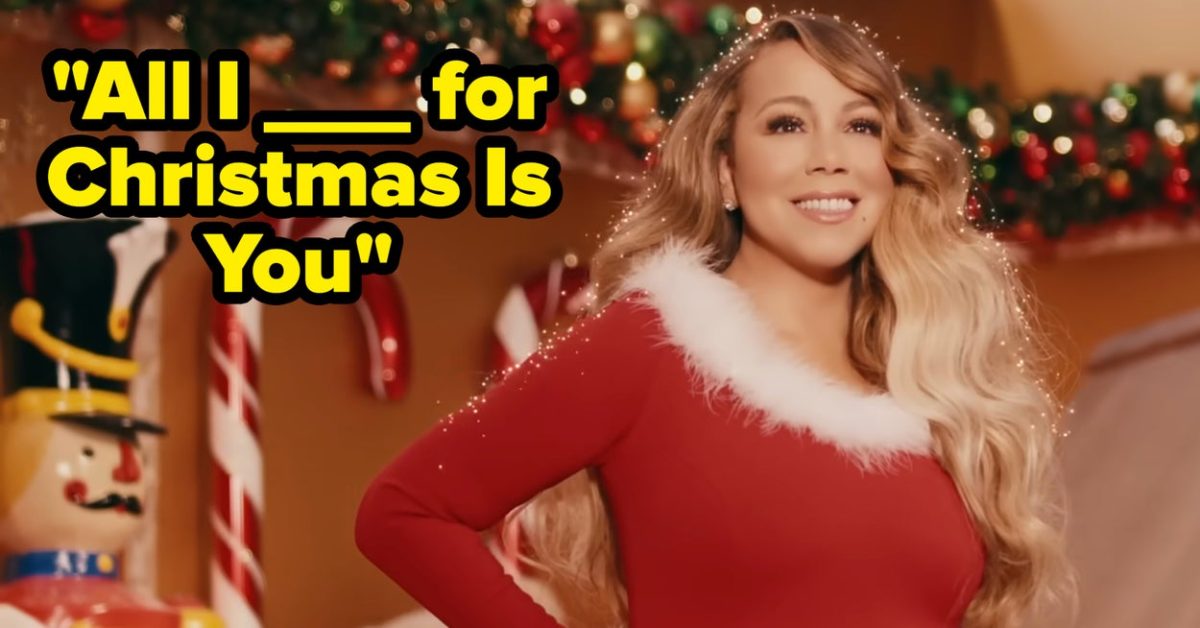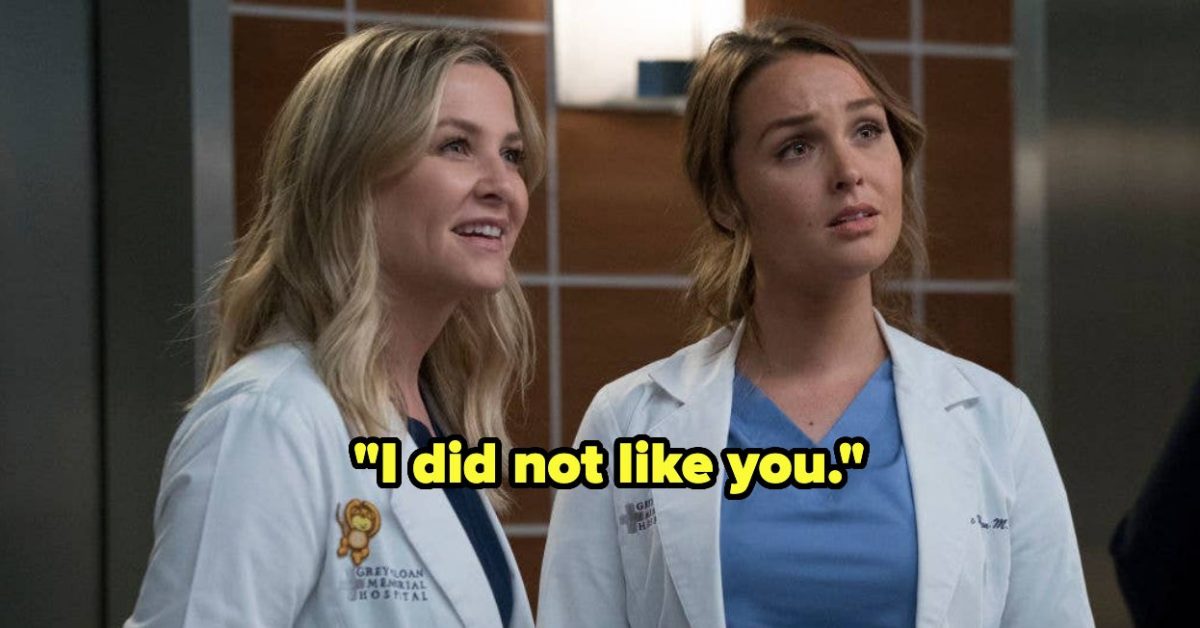
J.D. Payne & Patrick McKay Achieve The Impossible, But It’s Not What You Think
Jan 5, 2023
To be frank, it shouldn’t have happened. And while it’s not unprecedented it’s pretty damn close. No, we’re not talking about Amazon Prime Video spending $250 million for the television rights to “The Appendices” at the end of J.R.R. Tolkein’s “The Lord of the Rings.” In theory, that payday may actually turn out to be a pretty reasonable gamble if enough people keep their Prime memberships. What is almost just as incredible is the fact that longtime writing partners J.D. Payne and Patrick McKay were given the keys to Middle-earth in the first place. You see, this is the first completed credit of any kind for the showrunners of the highly anticipated new series, “The Lord of the Rings: The Rings of Power.”
READ MORE: Don’t look for a rivalry between “Rings of Power” and “House of the Dragon” [TCA]
A first-time showrunner isn’t unheard of, but it certainly isn’t the norm. Even David Benioff and D.B. Weiss had written the screenplays for “25th Hour,” “Troy,” and “The Kite Runner,” among other titles, before taking the reins of HBO’s “Game of Thrones.” Payne and McKay have sold a number of screenplays over the past decade, but none of them have been produced yet (and any ghostwriting credits have remained ethereal to most of their peers). And when the duo won the coveted gig in 2018, many in the television industry wondered what Prime Video topper Jennifer Salke was thinking. When “The Rings of Power” debuts on September 2, it appears Salke will have the last laugh.
Of course, this question isn’t easy to bring up. One of the pair smiled a confident smile while the other writer responded with a look of almost horror on his face. But that reaction quickly dissipated. Especially when it’s obvious to everyone that Amazon took “a gamble” on them.
“I’m sure it was scary for them, but I think they really believed in and wanted to see the same story we did,” McKay says. “And it felt like a collaboration that wanted to happen. And we just feel enormously fortunate and humbled to have been in the place in our careers where when we looked at the books, this was the story we felt the show should be and that we thought, gosh, if we really stretch, maybe we have the ability to try to unearth it and bring it to the screen with the thousands of other incredibly talented artists we convinced to crazily go join this circus. But we’re absolutely well aware and conscious of the fact that it might from the outside look quite strange and maybe shouldn’t have worked and if audiences think it did, then we’re just enormously grateful, but truly humbled by the opportunity.”
In fact, as evidenced by this interview, and the pair’s comments publicly, there is a genuine sense of modesty toward their accomplishment. They are the first to credit the thousands of artists who contributed to the 10-hour series and praise the Emmy and WGA-winning television writers who either wrote episodes or helped break down the series. They even consider themselves Frodo and Sam, the smallest creatures on Middle-earth who, in the original “The Lord of the Rings,” have been given the fate of the world in their hands. And considering what they have pulled off – filming in the middle of a global pandemic, no less – they could be a wee bit cockier. They could easily take more credit for pulling off what many thought would be impossible. And maybe down the road, they will. But for now? The duo is just hoping viewers around the world are enraptured by a vision of Middle-earth that’s a little bit old, a little bit new, but entirely captivating.
This interview has been edited and condensed for clarity.
____
The Playlist: Hey guys.
J.D. Payne: Hi, Gregory. How you doing? J.D. here.
Patrick McKay: Hey, Gregory. I’ve been reading The Playlist and reading you for many years.
The Playlist: Oh, thank you! So guys, I really enjoyed the first two episodes. Crazy impressed.
Patrick McKay: Oh, my God, thank you so much.
The Playlist: Seriously, and no shade meant in asking this question, but I have tons of friends in the television industry who are dying to know how you got this gig. This show is your first IMDB credit. You got to showrun a series that Amazon paid $250 million for. One of the biggest intellectual properties in history. How did happen?
J.D. Payne: We ask ourselves that every day. [Laughs] No, it was an amazing confluence of events, where we’ve been working in the features side of the business for about 10 years and Patrick and I have been working together for 25 years at this point. And the opportunity to pitch for this story came along, and a relationship we had over at Amazon led to sort of like an open door to come in and offer our way in. And so we knew what Amazon had bought the rights to and they had bought their rights to 10,000 years of Tolkien history. And so really the field was wide open for how do you do this? What do you do? And we started combing through everything and thinking about it. And very quickly we said for it to really feel like Tolkien, it has to have this and this and this and this and this, and sort a series of very natural, organic things kind of bubbled up. And so we keyed in on this time period of the Second Age of Middle-earth, which has the history of the forging of the Rings of Power, the rise of the dark lord Sauron, and the fall of Numenor, the last alliance of elves and men. And so we came in and we brought that story to Amazon and said this is the thing you want to do. And there were other people that were in that pool who had far more impressive resumes than we did. And we were in some ways the dark horse candidate, really, but we came in with a lot of passion and a lot of excitement for Tolkien and feeling like this was the story that wanted to be told that matched the ambition of what Amazon wanted to make. And so the pool went from this many to this many to this many, and finally, it was just a couple of names. And then eventually we got the call saying guys, they want to go with you. And then also I should say, by the way, the process involved pitching to the Tolkien estate, Simon Tolkien. Because Amazon, as a book company, really wanted to honor the legacy of the Tolkien estate. So they gave them a pretty big seat at the table to approve the showrunner. And so we met with the estate as well. And so both they and Amazon sort of eventually centered around us and said, guys, we’d like you to do it. And I tell you that is the phone call of a lifetime, when that comes in, you realize that your entire life is divided to everything before that phone call and then everything after that phone call.
Patrick McKay: I think they really took an incredible gamble on us. And I’m sure Amazon could speak to this, I’m sure it was scary for them, but I think they really believed in and wanted to see the same story we did. And it felt like a collaboration that wanted to happen. And we just feel enormously fortunate and humbled to have been in the place in our careers where when we looked at the books, this was the story we felt the show should be and that we thought, gosh, if we really stretch, maybe we have the ability to try to unearth it and bring it to the screen with the thousands of other incredibly talented artists we convinced to crazily go join this circus. But we’re absolutely well aware and conscious of the fact that it might from the outside look quite strange and maybe shouldn’t have worked and if audiences think it did, then we’re just enormously grateful, but truly humbled by the opportunity.
J.D. Payne: And on a meta-level, we feel very much like Frodo and Sam where we’re some of the smallest creatures in Middle-earth who are given the fate of Middle-earth into their hands. And so we built a fellowship around us that we believed would be able to help us to be able to get all the way.
The Playlist: You have these meetings initially as part of your pitch. How much of what you pitched at that point is in the initial first season of the show now?
J.D. Payne: All of it.
The Playlist: All of it?
J.D. Payne: Yeah, basically. We’ve certainly worked with people before who will do something then sort of blow up half of it and then everybody… And that’s kind of not how we work. We really build it from the inside out where we say this is the story we want to tell. And then that’s the spine off of which everything really develops and grows. And we have a picture of the whiteboard that we did in my assistant’s apartment.
Patrick McKay: In January of 2018.
J.D. Payne: Yeah. Where I was crashing at the time, and on that whiteboard, 90% of what was there is probably still the show.
Patrick McKay: Yeah. I mean the show has always been the show. The joy and opportunity has been taking that basic skeleton and spine, a five-season arc, and then filling it with imagination and personality. That has been the process of bringing all these other amazing and wonderful artists into our process of working together. We could talk about this for an hour, but we started with a writer’s room with an incredibly talented murderers row of writers, Gennifer Hutchinson, who had most recently worked on “Better Call Saul,” Jason Cahill, who worked on “Halt and Catch Fire,” “The Walking Dead” and “Fringe.” Justin Doble, who worked on “Stranger Things.”
J.D. Payne: Swept up people from the Pixar camp.
Patrick McKay: We worked with Brian Cogman out of “Game of Thrones” for a little while, and drawing on all of their incredible talents took that spine and filled it with emotion and imagination and character and humor and warmth. And it’s been a steady evolution all along, but it’s always been the same show. And we feel incredibly lucky to have been able to stumble across in the text this great story that we felt just wanted to be told. A new story from Tolkien himself. And we see ourselves really as the stewards and caretakers of that story, not the creators in any way.
Looking at the characters that are in the show, which found their way into the story first? Was Nori the gestation or Elron or Galadriel?
J.D. Payne: I think Elrond and Galadriel were probably the way initial genesis and then some of our Southlands characters also because they really represent the stake of the first season, so we knew that there would be a sort of danger that would be rising and Elrond and Galadriel were each going to be sort of confronting it in different ways. And Elrond would go over here and Galadriel would go over there. Each of them would be trying to sort of confront it in their own ways.
Patrick McKay: But the dwarves were always going to be a part of it. And then, I mean, you’re hearing now the organic process of creation, right? And Numenor was always going to be a part of it. And the idea of Galadriel potentially going to Numenor and meeting this whole other world of characters with a queen and her advisor and Elendil and his family. We always wanted to honor Tolkien’s love of underdogs and halflings and the smallest people. And in the book, there’s this wonderful prologue concerning Hobbits, where he talks about the ancient history of hobbits when they were these other predecessors, proto-hobbits, and then their wandering days. And out of those seeds, a whole culture sprang. And the idea of a halfling who maybe wasn’t quite like the halflings we met in the Third Age stories with a being landing in their backyard, more or less, from the sky, that was always one of the earliest ideas that really stuck to us and felt very Tolkienian. He’s all about the stars and beings transforming into stars. And Bilbo singing about the man in the moon, and so there was all this stuff in the stew and that stuff has grown and evolved. And these amazing actors, which we could talk about that for an hour, who came and breathed life into these characters anew. But again and again, throughout that process, we’re going back to the books, back to the books, back to the books. This was this man’s life’s work, creating this history and mythology of a place that was never real, but he makes it feel…
J.D. Payne: It could have been, yeah.
Patrick McKay: It could have been, he makes it feel real. And those books are filled with raw material that’s just waiting to be brought to the screen. And we think of it like walking in the cave and everywhere we tap our chisel there’s gold. Anyways, yeah, that’s sort of a long answer, but I think maybe gets to what you were asking about.
The Playlist: It does. But you begin this journey in 2018. Anyone would have a tremendous amount of pressure on their shoulders just to pull this off. By 2020, you’re in New Zealand, finally filming and then the pandemic happens. Were you just like, I can’t believe this is happening?
J.D. Payne: No, for sure. And we were able to use every moment of it really. I mean, whenever you’re on an adventure like this, there’s always going to be unexpected twists in the road.
The Playlist: I love how you call that a twist in a road.
J.D. Payne: Yeah. A sharp left turn where the world suddenly shuts down. And then it’s really hard to get people in or out of the country. There are a lot of challenges that came with it, but also Amazon was incredibly supportive and it gives an opportunity to be able to pivot and say, “You know what, let’s use this time to start banking material for season two, where we can convene a virtual writer’s room and really start to break into the season.” And in some ways that helped us shore up even things for season one because we’ve always had a long-term plan of where we’re going, but with a little more granularity of say, “O.K., cool. Here’s exactly where these people are going to be in season two.” That lets us tweak our ending of season one by 5% to make sure it’s going to line up with some of these season two stories in a really smooth organic way. And then also you get an opportunity to continue to refine some of the ideas for season one in terms of designing and scripting and some of those other things. So, really there wasn’t a wasted second. And with a show of this scope and scale, we were able to use the time.
The Playlist: Did the fact you were all stuck in New Zealand benefit the production in other ways?
Patrick McKay: I would never dare or suggest that what great luck that there was a pandemic. No, this was a global tragedy to a certain extent and a trauma. Uniquely our situation was we were all on this island and quite a few of the actors and quite a few of the crew members stayed and we all sort of hunkered down together. And I think that was part of a continuum of experience in making this first season where really no one who made this show had ever done anything like it before, right? You talked about sort of our credentials coming in, but also this cast is filled with new faces for most audiences. Really talented actors who’d done wonderful work before, but certainly not on this scale and visibility. No one’s really made anything on this scale. And I think the experience of all being sort of the misfit toys on the island together really created this family. And now we’re kind of taking the show out on the road. We were at Comic-Con a couple of weeks ago and you’re seeing this weird family reunion. We are incredibly close and we do take care of each other. And it’s quite moving to me actually the way that the sort of fires of the pressure of making something so ambitious and wanting to honor the books that we all held in such high regard, and doing in the middle of this global calamity, I think sort of strengthened the bond between us. And I think probably paid off in the work in real ways. There’s an enormous amount of blood, sweat, and tears that went into this show, an enormous amount of love and…
J.D. Payne: And sacrifice. Yeah.
Patrick McKay: Absolutely.
J.D. Payne: In the pandemic of it all, people are in New Zealand to make this show, but that means also you’re far away from your families and from your loved ones and significant others in some cases. And that puts pressure on people and it’s challenging. And really, we all kind of carried each other in different ways and tried to try to really be with each other on a human level, in addition to working together on an artistic level. And I think that as Patrick said, it really forged the bond.
Publisher: Source link
Guess The Missing Word: Christmas Song Titles
The holidays are here, and there's no better way to ring it all in than a seasonal song or two. So test your yuletide knowledge by identifying the missing word in the 14 holiday songs below. Good luck! Disclaimer: The…
Dec 26, 2024
Score an Extra 40% off Fashion & More
Our writers and editors independently determine what we cover and recommend. When you buy through our links, E! may earn a commission. Learn more. Even on Christmas Day, Anthropologie has your back with an extra 40% off sale that’s practically a…
Dec 26, 2024
"We Despised Each Other So Much That It Read As Love": 13 Costar Duos Who Did NOT Get Along
Diane Kruger said, "It kind of sucked. He's dead, so I can say that. But he wasn't the most pleasant person."View Entire Post › Disclaimer: This story is auto-aggregated by a computer program and has not been created or edited…
Dec 25, 2024
19 Best Experience Gifts for Everyone on Your List
Our writers and editors independently determine what we cover and recommend. When you buy through our links, E! may earn a commission. Learn more. As the holidays approach, the last loved one on your list is usually the hardest person to…
Dec 25, 2024











